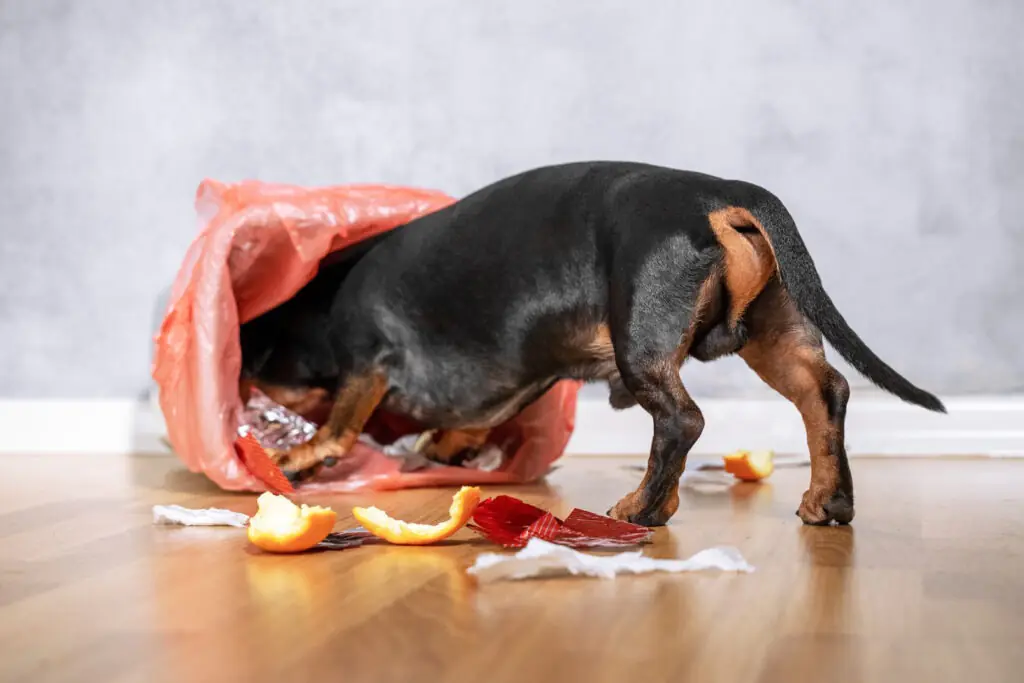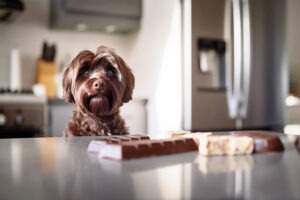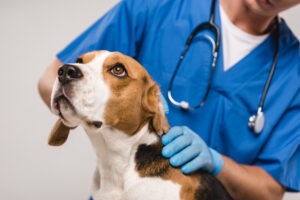
March is pet posion prevention month.
That’s a lot of P’s, but they are important to remember and to raise awareness of everyday household items that could be harmful to our dogs this pet poison prevention month.
We all love our dogs; they are a true extension of our families, and we would do anything to keep them safe. However, each year lots of inquisitive pooches consume substances that are extremely harmful to them as well as getting their paws on some human foods that look tasty, but might upset their stomach and end up with having to make a trip to the vet.
Although we all know that accidents can happen, we have jotted down some of the main culprits in terms of foods and other items that are dotted around the home, and may just want to be popped on a higher shelf or secured in a locked cupboard to prevent your furry friends from accessing them.
1. Medications: Keep all medications, both prescription and over-the-counter, out of reach of your pets. Many medications can be toxic to dogs, even in small amounts.
2. Household cleaners: Cleaning products, such as bleach, disinfectants, and drain cleaners, should be stored securely in cabinets or on high shelves. These chemicals can cause serious harm if ingested by your dog.
3. Foods: Some human foods are toxic to dogs, including chocolate (the darker the chocolate the more toxic it is for dogs), grapes, onions, and garlic. Keep these items out of reach and be aware of what foods are safe for your pet to consume. Be careful with peanut butter and toothpaste too as they contain Xylitol. Here are some other food and drink items to be mindful of:
Alcohol
Onions
Raisins and grapes
Cooked bones – due to splintered bones
Small bones
Avocados
Caffeine
Macadamia nuts
Fat trimmings – can aggravate pancreatitis
Stones from peaches, plums and cherries
Raw potatoes
Rhubarb
Other items to consider for pet poison prevention
4. Plants: Many common household plants, such as lilies, azaleas, and philodendrons, are toxic to dogs if ingested. Keep toxic plants out of reach or consider removing them from your home.
5. Small objects: Dogs are curious creatures and may try to eat small objects like coins, batteries, or toys. These items can pose a choking hazard or cause intestinal blockages if swallowed.
6. Household waste: Keep your bins securely closed to prevent your dog from getting into them and ingesting harmful items, such as spoiled food, bones, or sharp objects.
By taking these precautions and being mindful of what your dog has access to in your home, you can help keep your furry friend safe and healthy. Remember, prevention is key when it comes to protecting your beloved pet from potential dangers.
If you think your pup may have consumed any of the above, seek immediate advice from your veterinary clinic.


